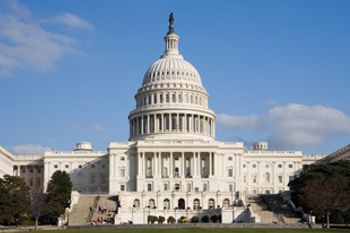
Some patient advocacy groups opposing Medicare changes have received funding from pharma companies in the past; new techniques allow scientists to target individual cells for analysis; rural nursing homes continue to close.

Some patient advocacy groups opposing Medicare changes have received funding from pharma companies in the past; new techniques allow scientists to target individual cells for analysis; rural nursing homes continue to close.

A recent study measured exhaled breath condensate (EBC) content that contained ultrafine particles (UFP) as a reflection of inflammation and oxidative stress in patients with chronic obstructive pulmonary disease (COPD) and as a marker of exacerbations.

A technology update, a new drug approval, and a drug recall due to more impurities.

Coverage of our peer-reviewed research and news reporting in the healthcare and mainstream press.

Senator Bill Cassidy, R-Louisiana, is working with Democratic colleagues Michael Bennet of Colorado and Maggie Hassan of New Hampshire to introduce a bill this month to stop patients from getting surprise medical bills; the FDA warned a major Canadian drug distributor, CanaRx to stop selling unapproved and mislabeled medicines to Americans looking to save money on prescriptions; Democratic leaders in the House of Representatives are trying to keep the chamber united behind narrower proposals aimed at strengthening the Affordable Care Act and lowering drug prices in the wake of the introduction of a Medicare for All bill.

Researchers have confirmed that there is no link between flu shots and miscarriages; a liquid biopsy is as effective as tissue-based testing for identifying treatment for lung cancer; and physicians generate an average of $2 million a year for hospitals.

House Democrats are expected to introduce a Medicare for All bill today; CMS' Center for Medicare and Medicaid Innovation is planning to unveil a new payment model for primary care physicians; and CMS, CDC, and FDA have established a task force to improve future responses to public health emergencies.

New Mexico, Colorado, Oregon, Washington, and Minnesota are among states looking at “Medicaid buy-in” proposals as a way to offer more affordable healthcare options; the return of measles is creating a backlash against critics of vaccines; first responders who worked during and after the 9/11 terror attacks and their advocates urged Congress to ensure that the September 11th Victim Compensation Fund does not run out of money.

The grilling that pharmaceutical company executives are expected to face Tuesday before the Senate Finance Committee is reminiscent of previous hearings with businesses that proved to be turning points; UnitedHealthcare lost its case to prevent a former executive from working at the new healthcare venture formed by Amazon, Berkshire Hathaway, and JPMorgan Chase; a bill to establish work requirements for thousands of Medicaid recipients in Wyoming passed its first reading in the state’s House.

Coverage of our peer-reviewed research and news reporting in the healthcare and mainstream press.

Pharmacy benefit managers (PBMs) took $123.5 million in spread pricing from Kentucky Medicaid plans, according to a state report; Richard Sackler, MD, the former president of OxyContin maker Purdue Pharma, repeatedly gave testimony in an opioid lawsuit that conflicts with a federal report, according to court papers; rural state lawmakers in Kansas are pushing a plan to allow the Farm Bureau to offer health insurance coverage, but Democrats and others are critical of the idea.

A bill would allow the importation of insulin from Canada and other countries; a survey highlighted the prevalence of anxiety and depression among teens; and the World Health Organization has established a committee to set guidelines for gene editing.

The FDA is warning against services offering to inject older adults with younger people's blood plasma; Gilead is being accused of providing kickbacks to providers to boost sales of its drugs; and a bill in Maryland would allow minors to consent to preventive treatment for HIV.

Kaiser Permanente will waive annual tuition for the first 5 classes of its new medical school, following a similar move by the New York University School of Medicine; menopause is typically thought of in terms of the end of fertility, but more attention is being paid to the effects of the lack of estrogen on the brain; a federal judge has ordered the US Air Force to temporarily stop discharging service members who are HIV-positive.

Health Canada announced that all biologics, including biosimilars, will be identified by their brand names and nonproprietary names without the addition of a product-specific suffix; a boom in the use of connected health and fitness monitors that are connected to insurance plans and employers is providing an increasingly valuable source of workforce health intelligence, raising privacy concerns, and adding a new dimension to the worker-employer relationship; as the number of spare embryos from in vitro fertilization rises, giving birth with donated embryos is becoming more popular, although many of the agencies that provide donated embryos are supported by federal funds and restrict whom they help.

Drug use is fueling record-high syphilis rates around the nation, a CDC report said; the Fifth Circuit Court of Appeals is allowing House Democrats to defend the Affordable Care Act (ACA) in a lawsuit that challenges the law’s constitutionality; the World Health Organization (WHO) is convening an expert meeting in March to develop global standards for the governance and oversight of human gene editing.

Coverage of our peer-reviewed research and news reporting in the healthcare and mainstream press.

Democrats have introduced a bill that would allow anyone over age 50 to buy into Medicare; an FDA advisory panel has endorsed a ketamine-like depression drug; and the EPA is set to limit the amount of manmade chemicals allowed in drinking water.

Half of children in with treatable mental health disorders in the United States do not get treatment; a small study demonstrated benefit with immunotherapy for glioblastoma; a task force recommends counseling services for new mothers at risk of depression.

An FDA announcement that it would step up oversight of the $50-billion-a-year dietary supplements industry was met with mixed reaction; a group of researchers in the United States and China are testing artificial intelligence (AI) to automatically diagnose common childhood conditions after processing data; close to 1 million people in California alone cross the border to Mexico annually for healthcare, including to buy prescription drugs.

The Environmental Protection Agency (EPA) is expected to make a decision soon regarding stricter regulations of polyfluoroalkyl compounds, or PFAS, which are chemicals in coatings meant to protect consumer goods from stains, water, and corrosion that have been found in drinking water; teenagers are turning to Reddit and other sites to figure out how to get vaccinated if their parents subscribe to antivaccine beliefs; Regeneron and Sanofi announced they are cutting the price of its proprotein convertase subtilisin/kexin type 9 inhibitor alirocumab (Praluent).

Johnson & Johnson will become the first drug maker to begin showing the list price of its prescription drugs in television ads; in a 5-4 decision, the Supreme Court blocked a Louisiana law that required doctors performing abortions to have admitting privileges at nearby hospitals; Democrats unveiled a bill to allow Medicare to negotiate drug prices.

Coverage of our peer-reviewed research and news reporting in the healthcare and mainstream press.

At least 4 chief exeuctive officers from pharmaceutical companies will testify at a Senate drug pricing hearing later this month; Washington becomes the second state to try a subscription-based model for purchasing hepatitis C drugs; and data suggest that marijuana lowers use of alcohol and other drugs.

Cancers related to obesity are on the rise, especially among millennials; a right-to-try advocate is receiving treatment for his amyotrophic lateral sclerosis under the new law; and women's brains age more slowly than men's.

Voters in the red states of Utah and Idaho voted to expand Medicaid under the Affordable Care Act last fall, but Republican legislatures in both those states are seeking ways to roll back those expansions; women sought out long-acting reversible contraception after the election of President Trump; a California coalition of health, labor, and education leaders cited a dearth of healthcare workers in recommending a workforce investment plan calling for spending up to $3 billion over 10 years to address the shortfall.

While President Trump's State of the Union address is not finalized, he may plan to unveil a promise to end HIV transmission in America by 2030; a federal judge dismissed a lawsuit brought by Maryland that claimed the Trump administration is failing to enforce the Affordable Care Act; new cystic fibrosis (CF) treatments targeting the genetic mutations that cause the disease help about 90% of patients, meaning that 10% are still waiting for a cutting-edge therapy.

Senator Mitt Romney, R-Utah, warned PhRMA that he and his new colleagues are working to tackle the issue of high prescription drug prices; Kentucky is delaying the start of work requirement rules for a portion of its Medicaid population; despite its approval by the FDA last year, Teva’s generic version of an epinephrine autoinjector is not available at the largest pharmacies or through drug distributors.

Coverage of our peer-reviewed research and news reporting in the healthcare and mainstream press.

A new study has demonstrated that e-cigarettes are more effective for smoking cessation than nicotine; the Department of Veterans Affairs released a proposal that would expand private healthcare access for veterans; and Aetna and Apple have launched a health app that helps users personalize and achieve their health goals.

259 Prospect Plains Rd, Bldg H
Cranbury, NJ 08512
© 2025 MJH Life Sciences®
All rights reserved.
